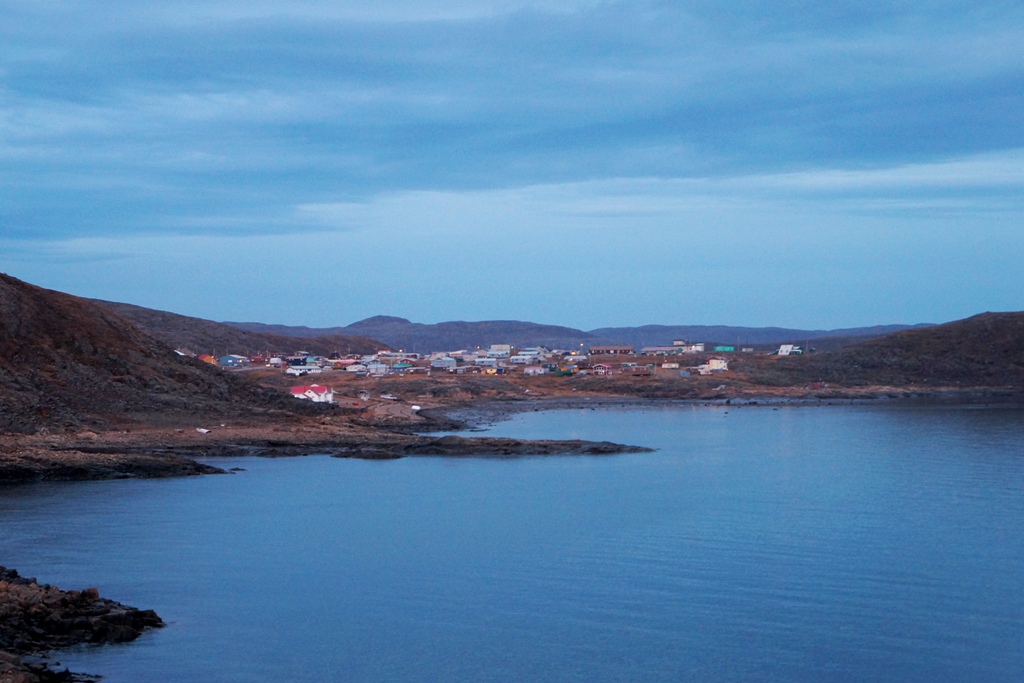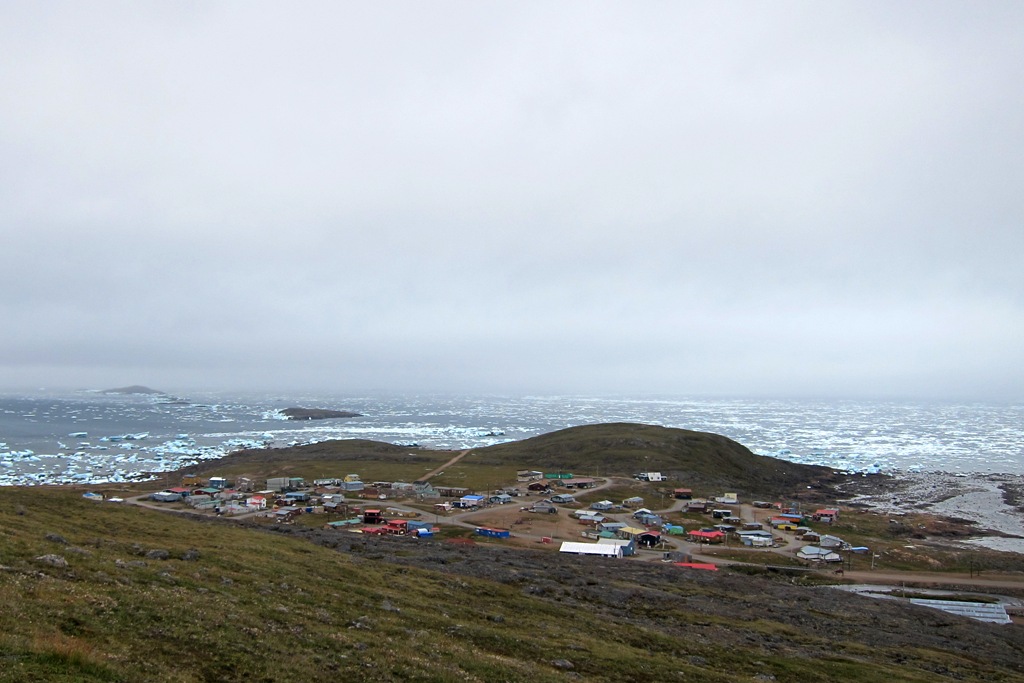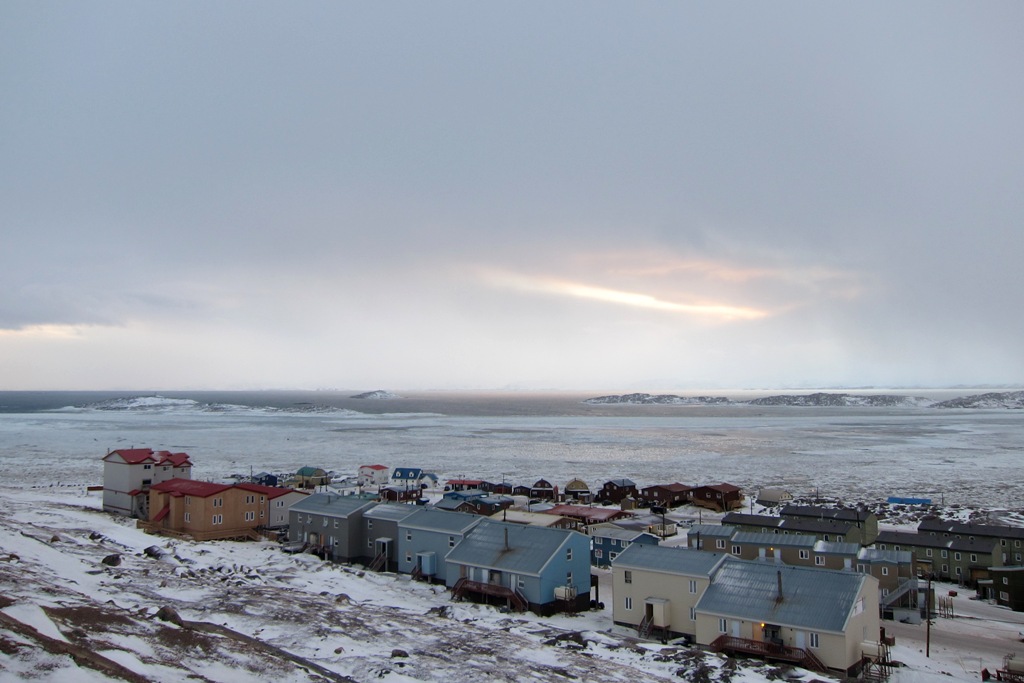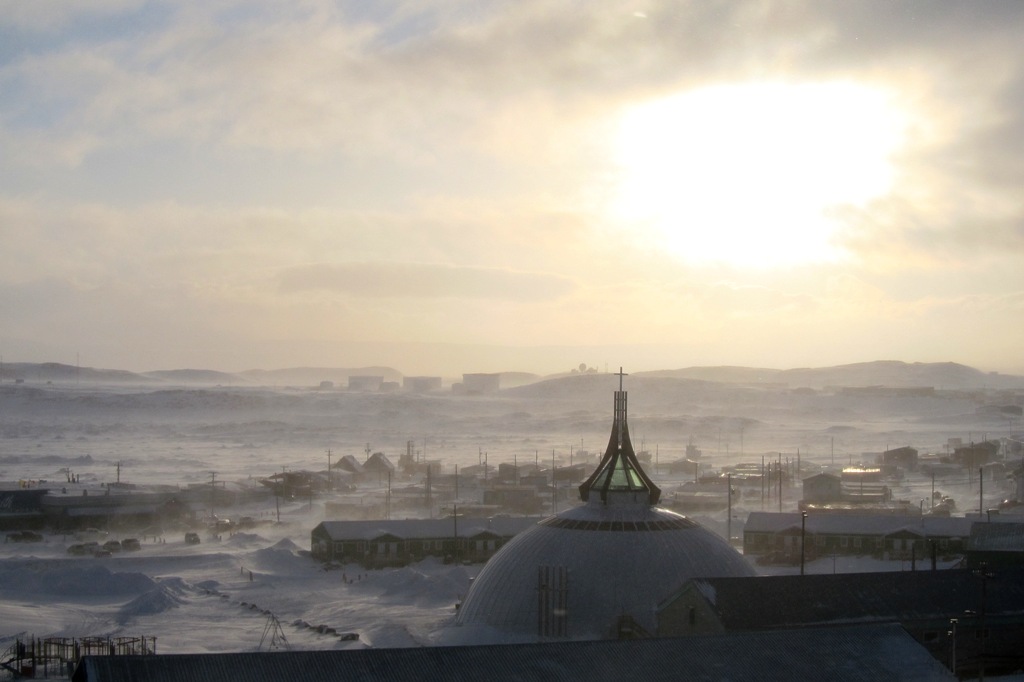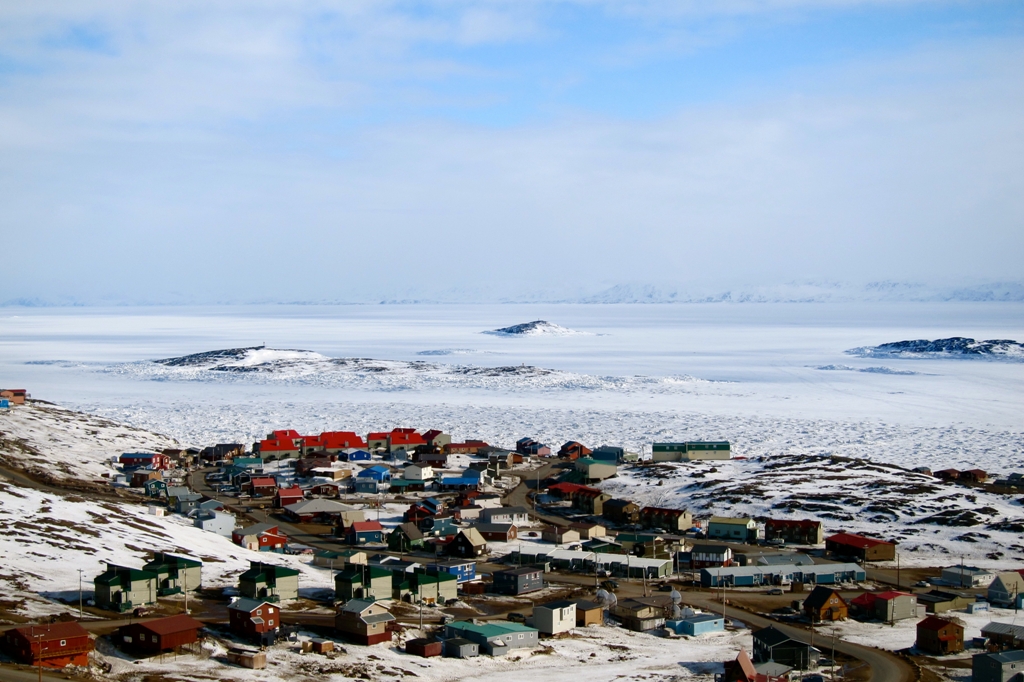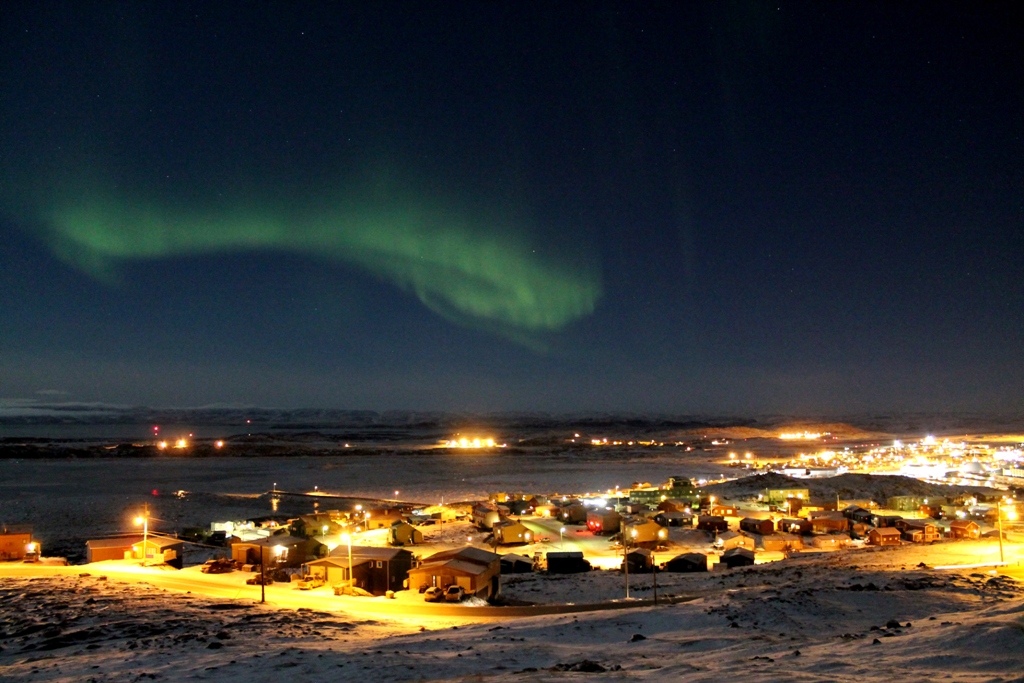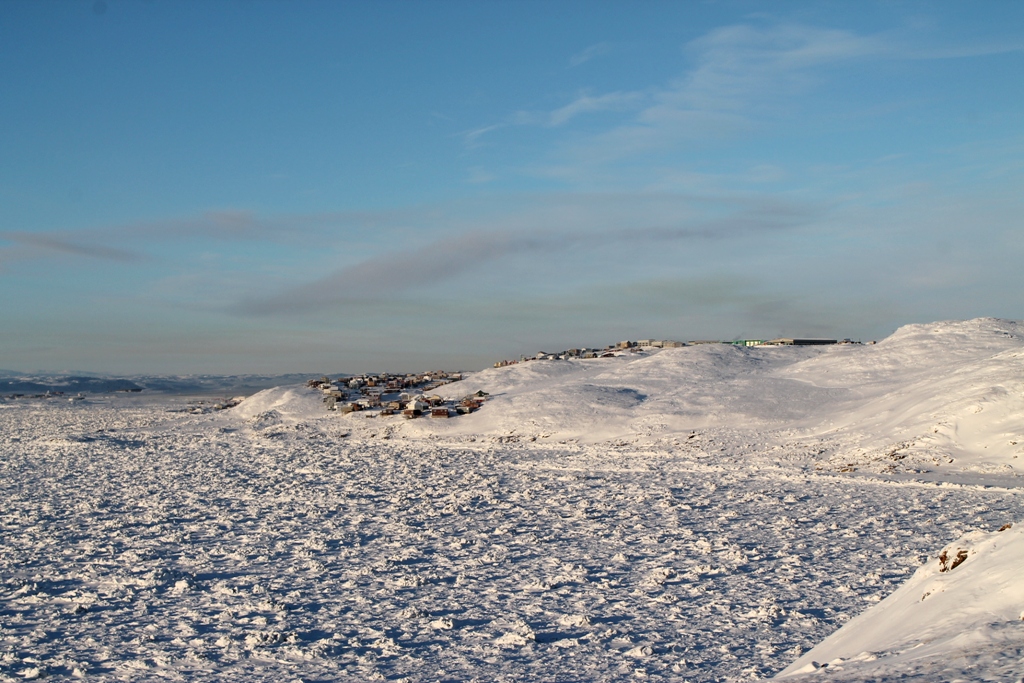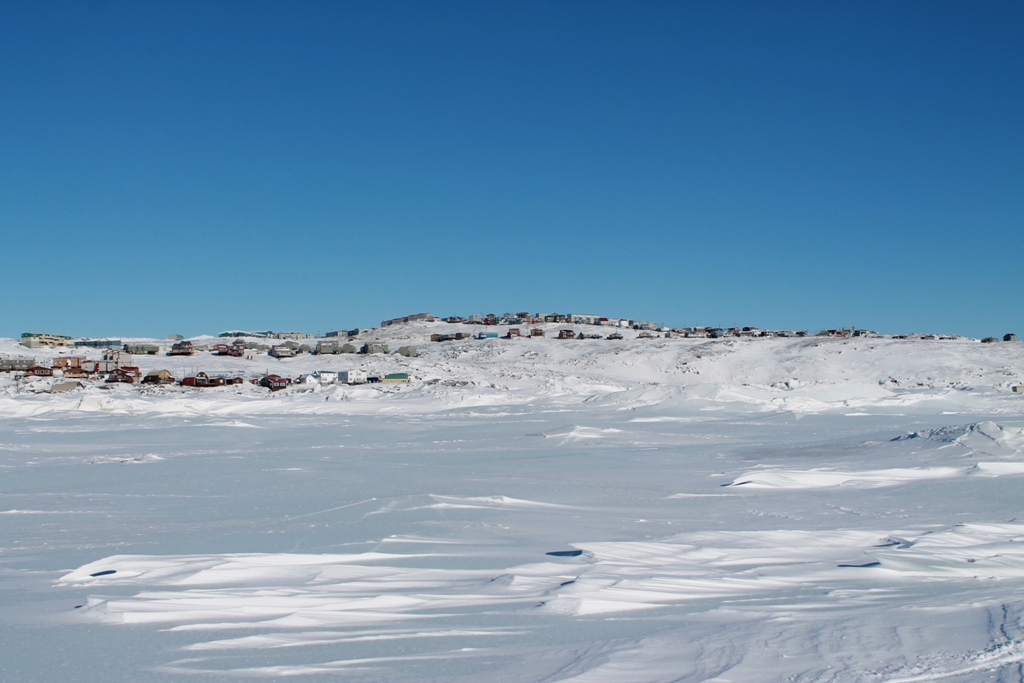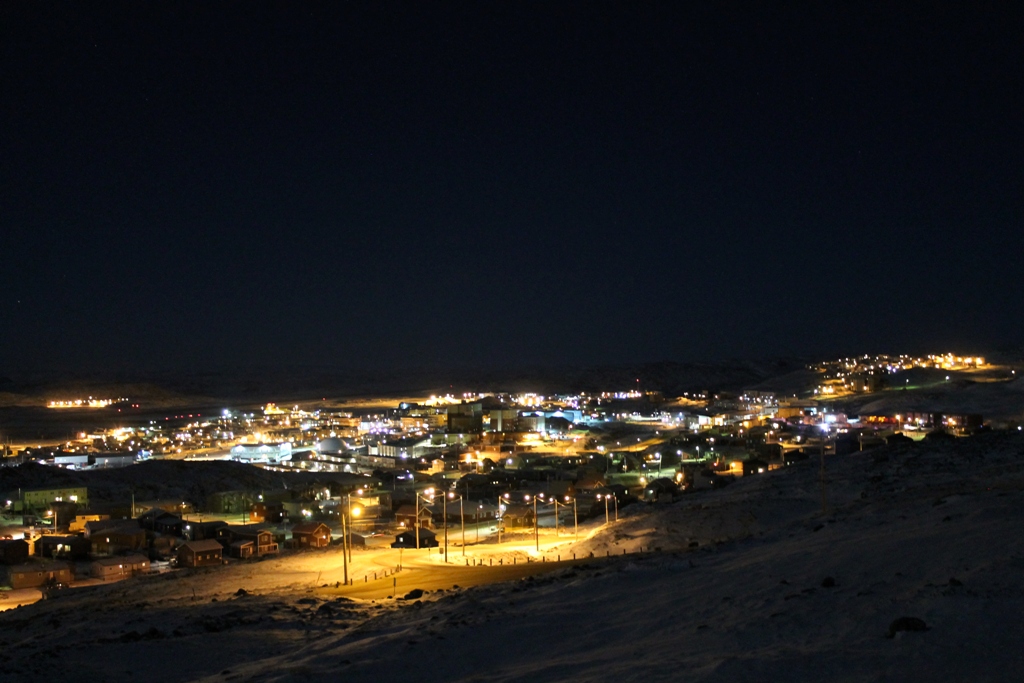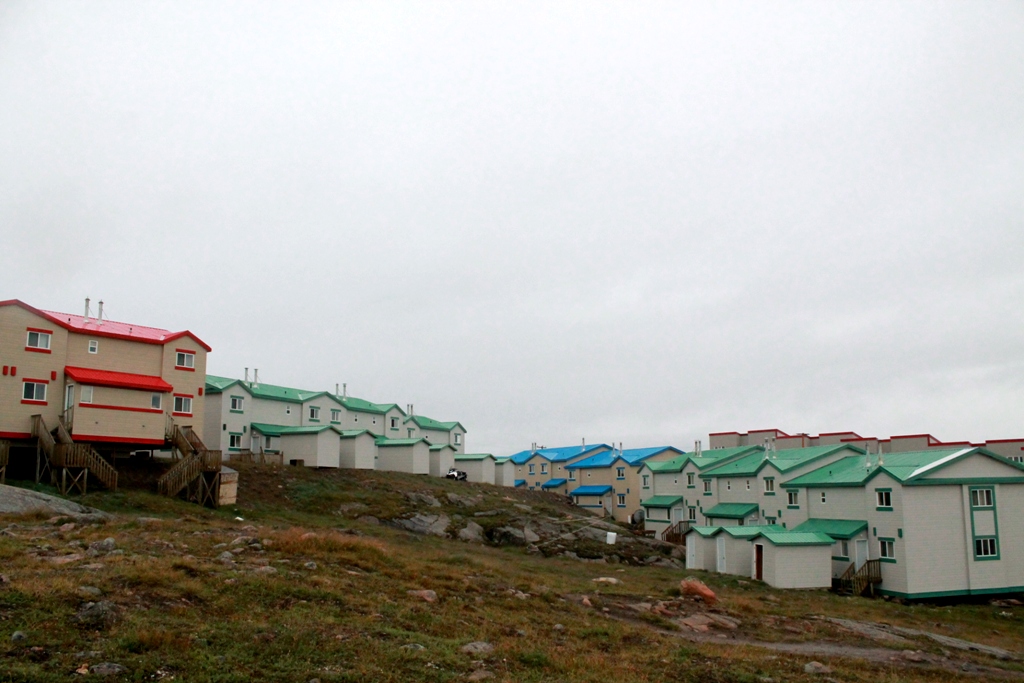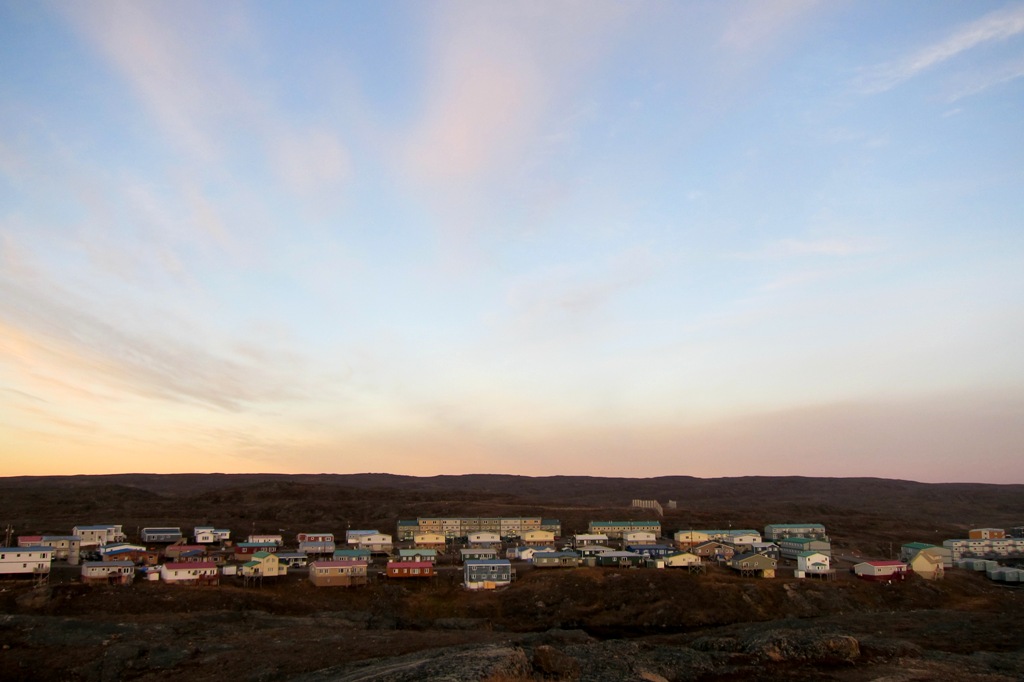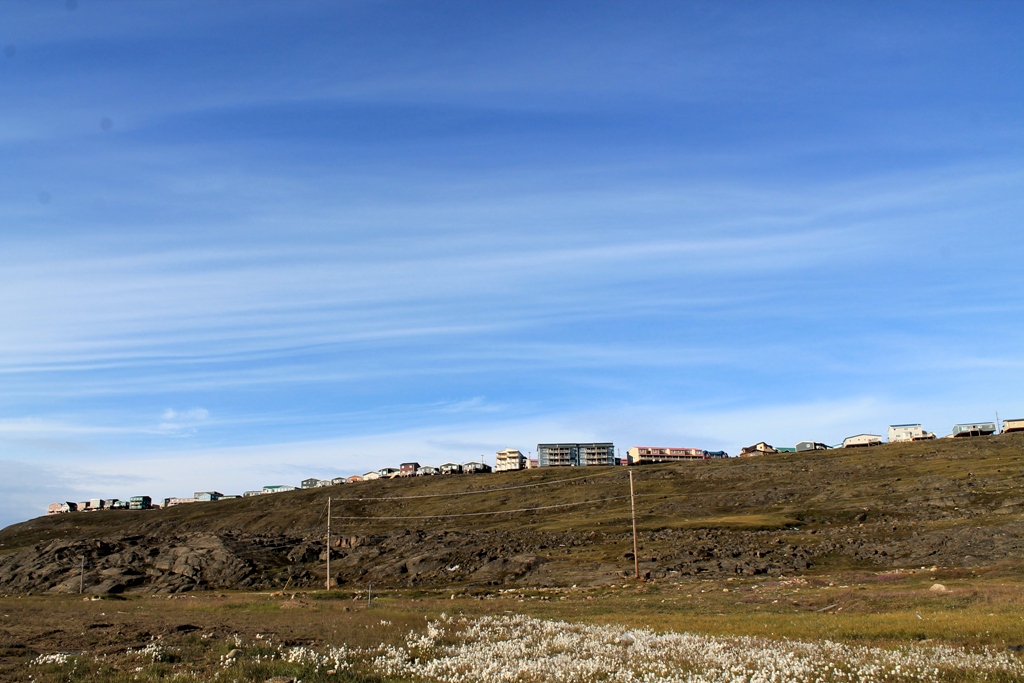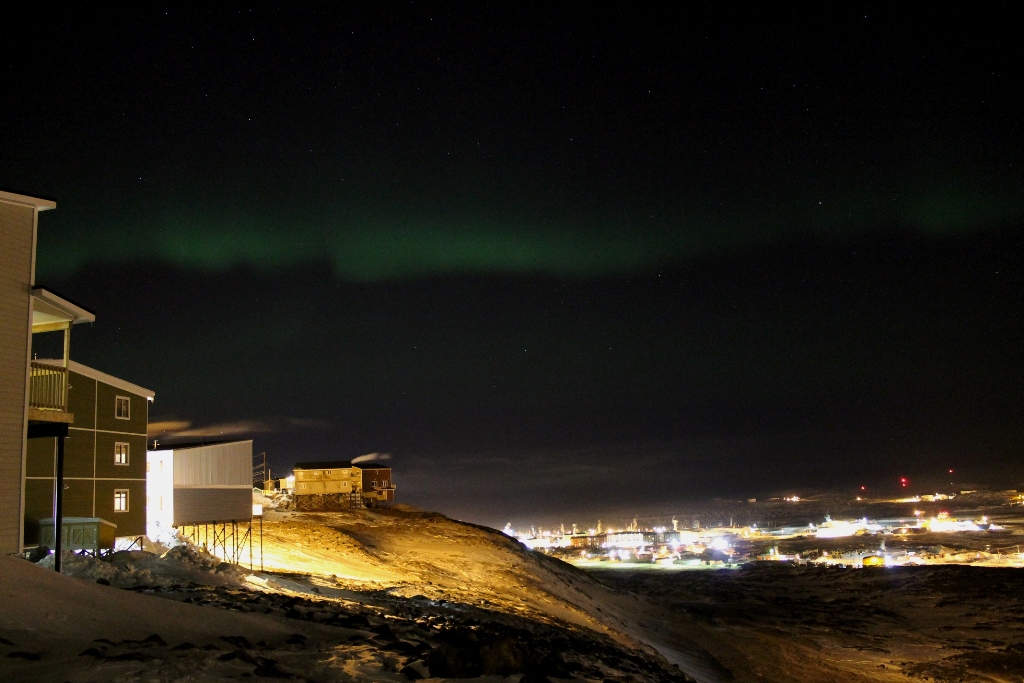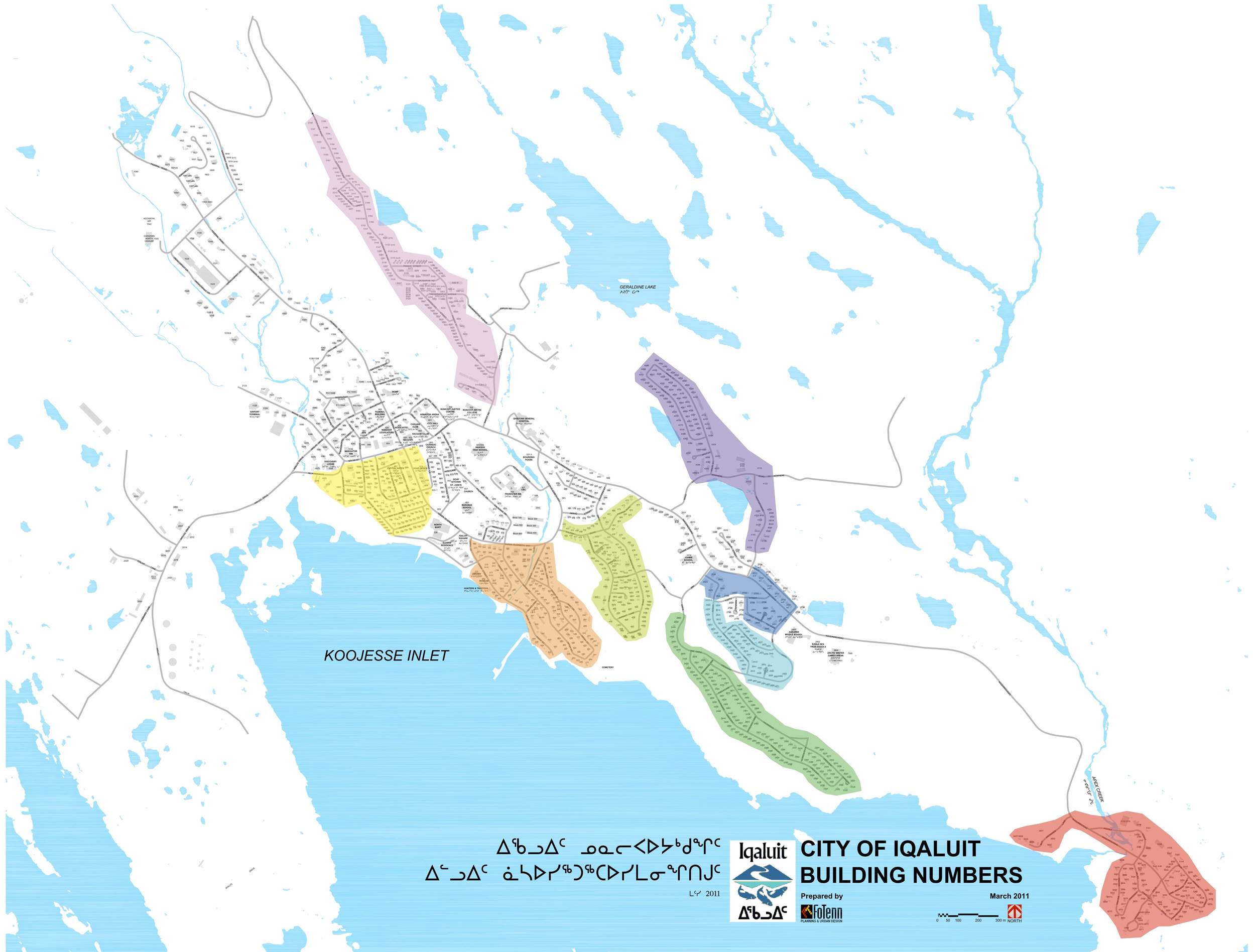
When I first started coming to Iqaluit, I was somewhat surprised by the amount of neighbourhoods it included. (Perhaps I assumed it would be too small for such plentiful subdivision?) In any case, I noticed people mentioning peculiar sounding locations in casual conversation: “It's just past Legoland!” “I live in Happy Valley, what about you?” “It’s a pretty far walk from Tundra Ridge.” And the list goes on. To be honest, I felt silly asking “Uhhh, where’s that?” So, I have put together an Iqaluit Neighbourhood Guide to help others make sense of it all. Disclaimer: Neighbourhood identification, unless working with Stats Canada on the census or something, is not an exact science. Please forgive any boundary errors, wrongful inclusions, glaring omissions, or other general inaccuracies.
The Map
The map below is for low-res display purposes only. Download a high-res, readable PDF with this link: Iqaluit Neighbourhood Map.
Apex
Map Colour: Red
House Numbers: 3000s
Apex is where nomadic Inuit began to settle back when modern-day Iqaluit was a military airbase. Located 5km from town, Apex is Iqaluit’s only “suburb.” Descending the hill entering Apex, a calming effect can’t help but wash over you. Much like the countryside removes all stresses from the busy city, Apex’s community vibe removes all stresses from the bustling core of Iqaluit. In Apex, you’ll find some popular destinations such as the Hudson’s Bay Company trading post (along the sandy beach), Rannva Design (on the other side of the bridge), and Rotary Park (on the far end of town). Don’t forget to climb to the top of Apex Hill – it offers incredible views of Tarr Inlet and Koojessee Inlet.
Lower Iqaluit
Map Colour: Orange
House Numbers: 100s, 200s, 300s
This subdivision is a bit of a mystery to me. To be honest, I didn’t even know it had a name until I started my internet sleuthing. I believe it encompasses sub-neighbourhoods known more colloquially as The Beach (sounds lovely, and it is) and The Graveyard (sounds depressing, but it’s beautiful). Lower Iqaluit is an older, diverse neighbourhood that is full of activity due to its close proximity to town as well as the breakwater.
Lower Base
Map Colour: Yellow
House Numbers: 600s, 700s, 900s, 1000s
Okay, this neighbourhood is another confusing one. Originally established by the Americans in the early 1940s, Lower Base is one of the five distinct areas that made up Iqaluit in the 1960s. I don’t know where it stops and starts, but I think it occupies most of the downtown area. In fact, my sources tell me that “Lower Base” is has become synonymous with “Downtown.” Here you'll find Aayuraa Studio, which is a jewellery studio shared by local artists.
Happy Valley
Map Colour: Light Green
House Numbers: 400s, 1600s
Happy Valley is located on the hill overlooking Lower Iqaluit and the graveyard. It is a slightly older subdivision that is socially and economically diverse, as it includes co-op housing, public housing, as well as private homes. This neighbourhood has a friendly vibe (go figure) and people have told me that it is the neighbourhood that is most similar to smaller Nunavut communities. What makes it so “happy?” We aren’t sure. Elisapi Davidee-Aningmiuq was quoted on CBC radio as saying, “I remember years ago somebody just said where are you going. Happy Valley. And then it just became that name, like it, like with really no background.”
Tundra Valley
Map Colour: Dark Green
House Numbers: 2400s, 2500s
Tundra Valley can be found on the hill above Happy Valley. Once upon a time, it was referred to as “Bel Air” because it was the newest neighbourhood in town. With a slew of recent construction, however, the name does not seem to have stuck. Tundra Valley consists of brightly coloured detached homes that have some of the best bay views in town. Many of the houses offer quick access to the Apex Trail, which leads to – you guessed it – Apex.
Tundra Ridge
Map Colour: Light Blue
House Numbers: 2600s
Continuing our upward ascent, Tundra Ridge is located above Tundra Valley. This lofty neighbourhood reaches perhaps the highest elevation in Iqaluit. Can you imagine the views? Well, you don't have to. Because I took photos. Yes, Tundra Ridge is a great place to check out buena vistas including downtown, Happy Valley, and Tundra Valley, and Frobisher Bay.
Legoland
Map Colour: Dark Blue
House Numbers: 2700s
Well, doesn’t this place sound fun?! Legoland is a funny little neighbourhood made up of tightly packed, brightly coloured, cookie-cutter townhouses. I read an article whereby the author suggested that “[Iqaluit] looked as if God had emptied his hand of Monopoly pieces.” I figured he must have been referring to Legoland, for I believe Monopoly pieces are perhaps a more apt descriptor than Lego blocks. But I digress. It remains a mystery where Legoland starts and ends. According to my research, some people consider it to include the houses along Coronation Street, while others include the aesthetically similar buildings that are geographically similar to Tundra Ridge.
Road to Nowhere
Map Colour: Purple
House Numbers: 4000s
Ah, the famed Road to Nowhere. Well, if we’re being literal it actually leads to a firing range, an abandoned “Site of Future Cemetery,” and some excellent hiking and swimming areas. But before you get that far, this newer subdivision includes single-family homes as well as very recently built multi-unit buildings. Last fall, the City of Iqaluit approved plans to develop another subdivision along the Road to Nowhere, so I’m going to have to update my map soon.
Plateau
Map Colour: Pink
House numbers: 5000s
The Plateau is located on – get this – a plateau. Found above the airstrip and North 40 area of Iqaluit, the Plateau is considered to be the “newest and wealthiest” subdivision. Location dependent, this neighbourhood offers views of downtown, Old Res, and the tundra. Oh, and of course the Dumpcano. If you continue along the Plateau's main gravel road (please, City of Iqaluit, pave the damned thing), it includes its own version of a road to nowhere. Last winter, I walked along it for a good hour or so before getting scared of wild critters and frostbite and turned around; it literally goes nowhere. (Update: my investigative run this morning taught me that it leads to the quarry.)
What do you think of this Iqaluit Neighbourhood Guide? Do you have any corrections or history lessons or anecdotes to share? If so, please let us know in the comment section below or on Twitter!

